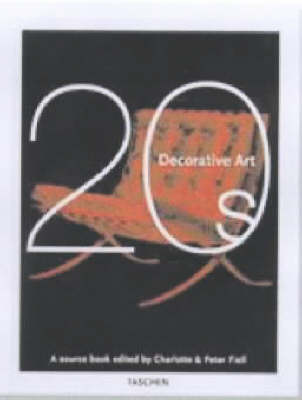Specials S.
1 total work
This new installment in Taschen's Decorative Art series takes us back to the Roaring Twenties, a time of great optimism and technological progress which saw the birth of new materials and styles in building and design. The Art Deco movement, a great departure from Art Nouveau, surfaced in the early 20s, drawing influences from Futurism, Cubism, Neo-Classicism, and Egyptian and African Art. While Art Deco, flaunting excess and luxury, largely dominated the style of the 1920s, another new movement, Modernism, began to make itself known towards the end of the decade. For the first time, materials such as concrete, plate glass, and tubular metal were beginning to appear; following the dictum ""form follows function,"" utilitarian simplicity and classic geometry were the Modernists' driving principles, as seen in the work of Walter Gropius, Marcel Breuer, and Ludwig Mies van de Rohe, to name a few.
Moving from the spirit of the Jazz Age to the cool simplicity of LeCorbusier's early ""machines for living,"" Decorative Art 1920s is a fabulous tour through the groundbreaking innovations of interior design and architecture in the century's wildest decade.
